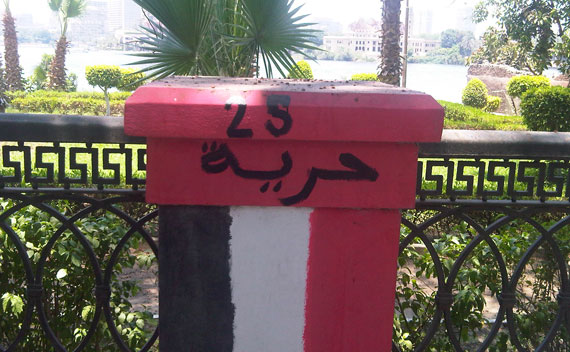Egypt: Certainty and Zero Information
More on:

“ElBaradei met with the military for four hours last week. They are preparing the ground to support him.”
“Amr Moussa’s constituency does not use Facebook, that is why he will win.”
“Abdel Monem Abdel Fotuh represents authentic Egyptian moderate conservative values. He is going to be Egypt’s next president.”
“The military will delay the election timeline. You already see them moving in that direction.”
These are just some of the assertions that I heard in Cairo last week. The certainty with which these declarations and others like them are made is surprising because they are a function of not just incomplete information, but often no information at all. Everyday it seems brings some new and often unexpected development in Egyptians’ efforts to build a political system. In this moment of uncertainty—that word again—Egyptians are trying to make sense of the complex world around them and some have fallen into a trap. They believe that because something makes sense to them it makes sense to many other Egyptians as well. So, of course, the liberal secularists will prevail in the coming electoral season because the liberal parties will coalesce and they will also draw in the remnants of the NDP from the countryside giving them an advantage over the fracturing Muslim Brotherhood. At the same time, it goes without saying that those same NDP remnants will throw in their lot in with Islamist groups because their conservative values align better with religious parties. So which is it? Nobody actually knows.
I suspect that after the elections—which, by the way, the Supreme Council of the Armed Forces yesterday affirmed will be held as scheduled—there will be many Egyptians who will feel a lot like those Americans who drove around during the 2000s with bumber stickers that read, “Josiah Bartlet is MY president.” These folks could not understand how other Americans viewed the world so differently from the way they did and this reflected the polarization of politics and society. This is the road that Egyptians are currently traveling, which is not as terrible as it sounds. People tend to equate “polarization,” especially when it come to the Middle East, with violence. This is just plain bias. Egyptians are proud of the fact that when they survey the region, their economy and society remain intact. Despite the violence that took about 800 Egyptian lives during the uprising, there has been a determination to keep the cacophonous debate about the country’s future peaceful. Still, Egypt’s polarization means that settling first order questions about how to define the new Egypt, the relationship between state and society, religion and state, Egypt and the region, and Egypt and the world is likely to last a long time. Do they have that time? There is a sense among some Egyptians that they don’t have as much as they would like, given current economic circumstances. Still, there seems to be enough people willing to be patient in order to “get the politics right” and hoping the economy follows.
More on:
 Online Store
Online Store